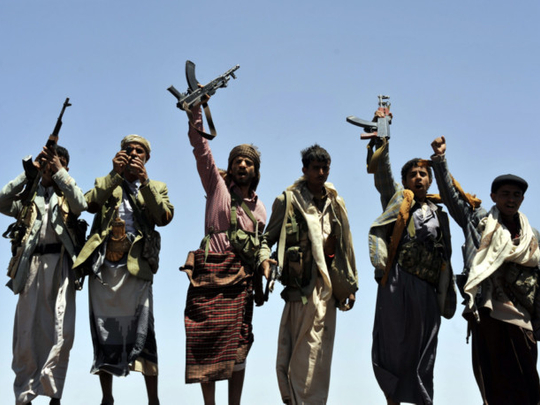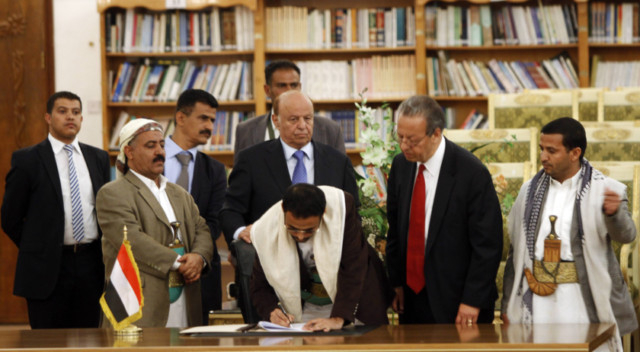
Sana’a: Since the Al Houthis have taken the centre stage in the last several years, opponents have repeatedly accused them of being a proxy for the Iranians and expected them to declare a Shiite state if they seized power in the country. In the last couple of days, the rebels who hail from the northern province of Sa’ada, have nearly overrun most vital government and military institutions in the capital. They swiftly managed to control ministry of defence, army bases and the national TV. Yemeni analysts who spoke to Gulf News agree that the Al Houthis would not copy the Iranian revolution but rather create a Hezbollah-style grip over the Yemeni government.
Fatehi Bin Lazerg, the editor of Aden- based Aden Al Ghad newspaper said that the northern Yemen rebels still do not have much support in many provinces in the country including the restive south.
“It is impossible that the Al Houthis will declare a Shiite state in Yemen at the moment since they do not have administrative or political experience.”
Bin Lazerg thinks that the Al Houthis will repeat the experience of the Islamist Islah party when they defeated Ali Abdullah Saleh in 2011.
“They formed a coalition government and controlled it from the shadows. The declaration of a Shiite state could provoke some areas like the south to revolt against them or even secede.”
Sami Ghaleb, a political analyst, agrees with the notion that the Al Houthis are not capable of declaring a state on their own for a demographic reason.
“The Yemeni capital is no longer Zaydi-dominated city to be solely controlled by the Al Houthis (who are Zaydis). Most of the capital’s three million people do not come from the Zaydi areas in the republic,” Ghaleb told Gulf News in an interview via telephone.
Ghaleb said that the Al Houthi raids in the capital are exclusively meant to target some rival political and religious groups.
“The Houthi incursion into the capital is attempting to purge the military, tribal and religious figures who supported anti-regime protests in 2011. If you remember when the people went to the street in 2011 to overthrow the Saleh regime, protesters used to have a long list of figures to leave with Saleh which include Ali Mohsen Al Ahmer.”
Months after the beginning of the uprising, Saleh and his close relatives remained alone on the list. The Al Houthis maintain that those “corrupt” figures hijacked the uprising.
The Al Houthis walked out of the transitional talks that ended earlier this year in protest of regional division which put them in a poor and sea-free region called Azzal. The region includes provinces of Sana’a, Amran, Dhamar and Sa’ada, but despite their objection to the division, the Al Houthis expanded their territories and finally asserted their grip on the province of Sana’a. “Now, the Al Houthis control Azzal region,” Ghaleb noted.
“The Al Houthis are aware that any arrogant or provocative behaviour could trigger rebellion against them. So they kindly dealt with the people and protected the government and private facilities from looting,” Ghaleb said. Bin Lazerg said that the easy and quick victories of the rebels proved that the army reconstruction was not effective.
“The sudden collapse of the state in the capital shows that the army has never been controlled by president Al Hadi.”













